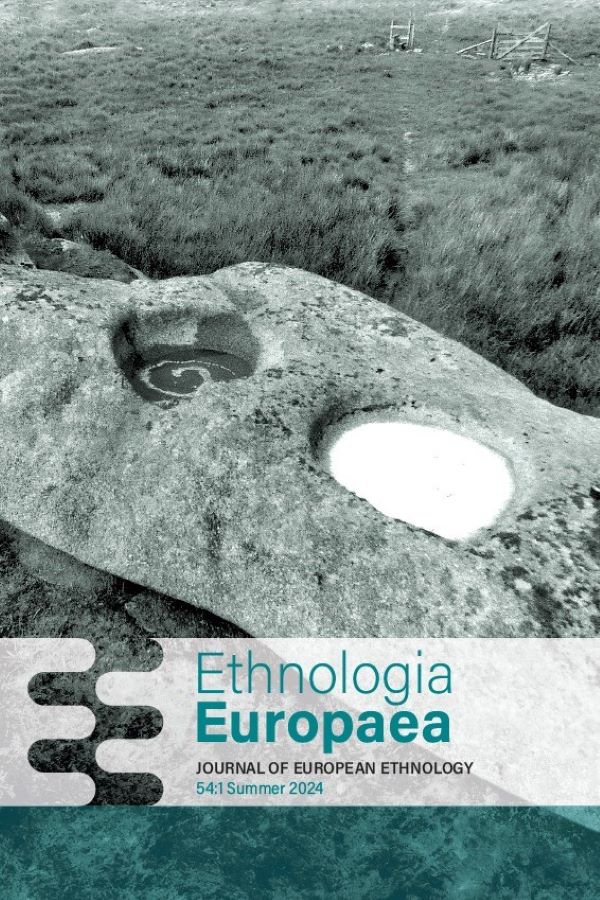SIEF is an international organization that facilitates and stimulates cooperation among scholars working within European Ethnology, Folklore Studies, Cultural Anthropology and adjoining fields. SIEF organizes large international congresses and smaller workshops. Read more about SIEF...
Seventeen thematical Working Groups are active within SIEF which organize their own congresses and workshops.
SIEF News
SIEF2025: Aberdeen, Scotland: June 3–6 2025
SIEF Summer School 2024 “Postscapes Matter”
23-27 September 2024 in Zagreb, Croatia
The SIEF Summer School 2024 explores how and why postscapes matter; as a lived experience, a historical or temporal condition and as a conceptual tool or a way of knowing. We invite our participants to consider: What comes after post-? What is left of post-, as a concept? Why is it still important to think in terms of diverse postscapes?
More information on the Summer School page.
SIEF Working Groups News
Lost Places and Abandoned Landscapes
Space-lore and Place-lore working group conference, taking place 29th–30th October 2024; University of Szeged, Hungary
Cultural landscapes across the globe have experienced rapid and profound transformations. Throughout the 20th and 21st centuries, economic, political and climatic shifts have compelled various communities to leave their homelands and adapt to new environments. As a result, numerous areas have been depopulated and, local landscape management and practices vanished. Read more here >>
The 15th Conference of the SIEF Ritual Year Working Group: Food, Feasts, Festivities, & Folklore
The theme revolves around the importance and meaning of food. The conference aims to highlight the centrality of gustatory experiences and gastronomical practices in various ethnolinguistic groups around the world. Read more here >>
SIEF JOURNALS
New issue of Ethnologia Europaea, Vol. 54, no. 1
 This new issue of Ethnologia Europaea comes with several changes to the structure and editorship of the journal. It is with poignant memories and happy expectations for Ethnologia Europaea that we write about a new era: to begin, EE has just moved to a new publisher at the start of 2024. Berghahn Journals will now be our home for the foreseeable future, and we are already enjoying the professional atmosphere of this independent, progressive and social science-friendly publishing house. With this switch from OLH, EE now becomes part of Berghahn's OpenAnthro model.
This new issue of Ethnologia Europaea comes with several changes to the structure and editorship of the journal. It is with poignant memories and happy expectations for Ethnologia Europaea that we write about a new era: to begin, EE has just moved to a new publisher at the start of 2024. Berghahn Journals will now be our home for the foreseeable future, and we are already enjoying the professional atmosphere of this independent, progressive and social science-friendly publishing house. With this switch from OLH, EE now becomes part of Berghahn's OpenAnthro model.
We feel this change will usher in a bright new future for the journal because it will give it much more visibility, as we will be part of a collection of high-ranking journals, including Social Anthropology/Anthropologie Sociale (SA/AS) and the Anthropological Journal of European Cultures (AJEC). Please do recommend the OpenAnthro collection to your libraries; it is library subscriptions that make this “open model” possible.
New Issue of Cultural Analysis, 21:2 (2023)
 Approaching Climate Change Adaptation:
Approaching Climate Change Adaptation:
Knowledge, Power, Communication
The consequences of human-induced climate change are as diverse as the adaptation strategies people have started to develop. Approaches to climate change range from local initiatives to national and global programs and are embedded in various knowledge systems and partially contesting world views. This special issue aims to improve the understanding of those dynamics that are linked to knowledge, power, and communication when adapting to the diverse repercussions of climate change. The communication and integration of this situated knowledge are considered crucial for fair and transparent climate change adaptation measures.
However, this integration is also described as problematic, highlighting different epistemologies, competing political agendas, societal and economic inequalities, and clashing ontologies. The impact of climate change on society is currently discussed mostly in terms of adaptation, resilience, and vulnerability. Ideas of adaptation are often regarded as “neutral” drivers of action and seem to be “the only viable option for survival” (de Wit 2014, 57). However, the rationalities which characterize current adaptation concepts are criticized because they have been shaped predominantly by the natural sciences and ignore aspects of climate justice as well as social, cultural, political, and economic conditions on the ground (Nightingale et al. 2020).
The issue is co-edited with guest editors Sophie Elpers, Arnika Peselmann, Silja Klepp & Domenica Farinella.





